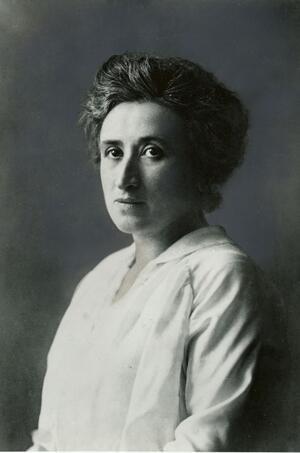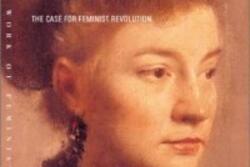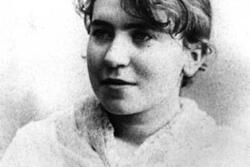Rosa Luxemburg and My Anticapitalist Politics
I used to value harmony; I seldom sought to disrupt the status quo. I consumed a gross amount of cable news and had a relatively simple view of politics. It wasn’t until I began consuming independent feminist and leftist literature that I realized exactly what the “establishment” is and how it perpetuates nearly every social ill that exists. Our politicians are money-hungry and swayed by corporations. Industry exploits workers and the environment. Expansionist foreign policy and oil-driven wars take hundreds of thousands of unnecessary lives, especially those of poor and indigenous communities.
This is the way America has always been, but many, myself included, have long chosen to ignore it. Many on the left will blame the Trump administration, but a lot of these policies are decades-old (although Trump’s administration certainly has a hand in perpetuating them and escalating them.)
People on the left and right say they long for a sense of “normality” in politics; but after studying revolutionist literature, written by figures like Emma Goldman and Karl Marx, I realized that “normality” hasn’t worked for anyone except for the ultra-rich. As such, I abandoned my moderate politics for what some would call “radical” ideas.
While learning about political theories on both sides of the political spectrum, however, I discovered a worrying streak of antisemitism. People on both the left and the right view Jews as perpetrators of the status quo, dealing heavily in politics, media, and financial sectors. I wondered about the place of Jews in revolutionary politics: Is it oxymoronic? I couldn’t find my place in a revolution that largely scapegoated my most central identity.
I believed that my anticapitalist views clashed with my other identities until I read the works of Rosa Luxemburg, a Polish Marxist theorist who is best known for her anti-war beliefs and for her vast repertoire of socialist and Marxist literature written prior to WWI. Luxemburg was raised in an assimilated Polish Jewish family, and, from what I read about her, she kept her Judaism separate from her politics, as well as her feminism. Her identity as a Jew seemed to rarely be an obstacle in achieving her political motives, which proved to be necessary in an increasingly antisemitic eastern Europe.
In a nation deeply divided along racial, gender, and political lines, a unifying movement based on class is a critical first step to achieving any radical change. Luxemburg believed that dividing the proletariat into groups based on gender, ethnicity, religion, or nationality would be detrimental to socialist objectives. Further, she believed that highlighting the particular injustices faced by a single group would undermine unity efforts among the working class.
Throughout her extensive career in activism, Luxemburg associated with several political groups and parties, such as the Polish Social Democratic Party and the Sparticus League, which would later develop into the German Communist Party. No matter which group she affiliated herself with, her positions seldom faltered, even when they clashed with other prominent socialists, such as Vladimir Lenin.
While I agree with a majority of Luxemburg’s positions, I believe that she adheres far too strictly to the idea that any disparities based on race or gender will work themselves out naturally over the course of a revolution. Historically, women and people of color have been repressed most severely under capitalism, and dismantling social structures that perpetuate this cycle will require special attention. The modern socialist movement, while still placing a high emphasis on unity as Luxemburg suggests, would fare much better by paying due attention to specific injustices based on identity.
Rosa Luxemburg’s idealistic yet strong commitment to a unified revolution of workers against the bourgeoisie and oppressive capitalist social structures has secured her place as one of the most influential socialists of all time. Through Rosa Luxemburg’s work, I see how Jews can take part in and benefit from a political revolution. She teaches me how to place my political motives at the forefront of my activism and allows me to evaluate the role that my identities play in my politics.
While I disagree with her lack of emphasis on capitalism’s varying impact on different racial and socioeconomic groups, Luxemburg’s steadfast belief in the unity of the working class is crucial to any modern socialist or broader revolutionary movements. Most importantly, Luxemburg emphasizes a crucial unity among working and oppressed peoples, a sentiment that is needed now more than ever as our country divides itself.
This piece was written as part of JWA’s Rising Voices Fellowship.






